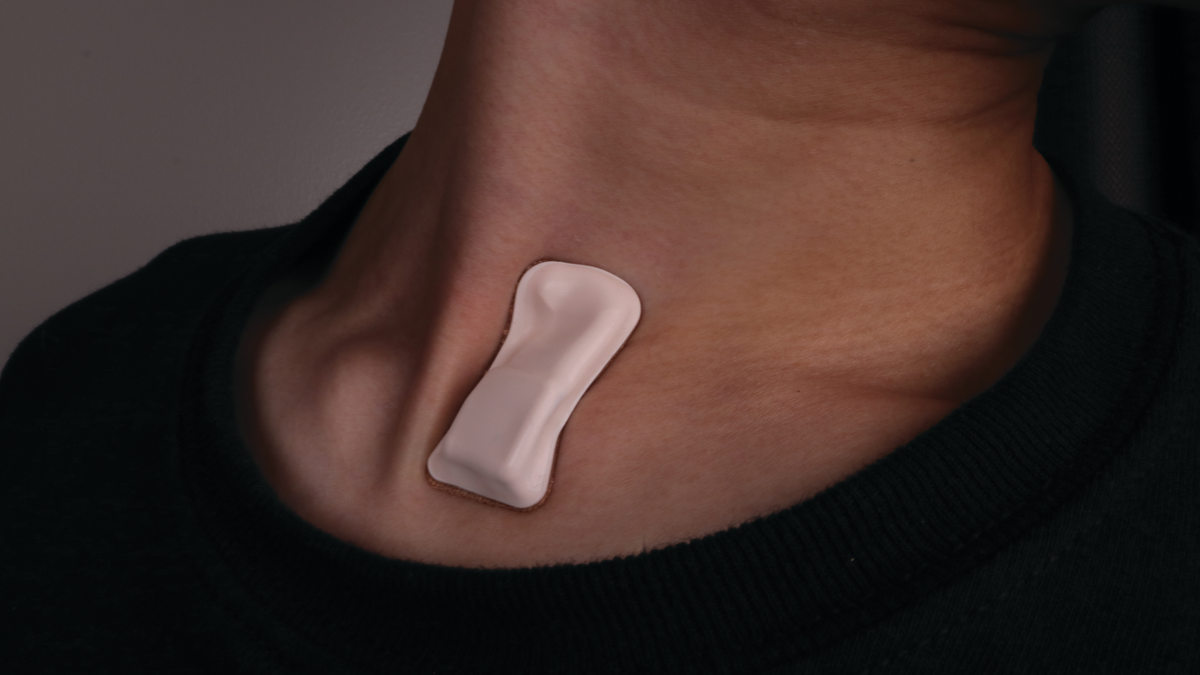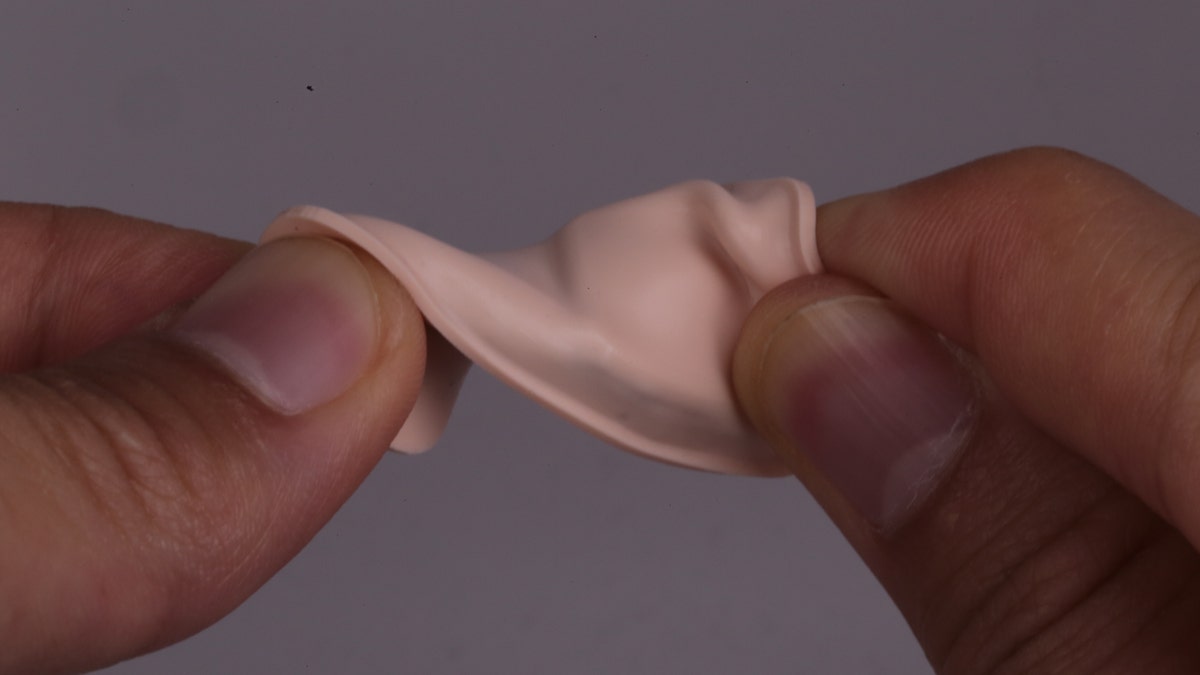Fox News Flash top headlines for May 5
Fox News Flash top headlines are here. Check out what's clicking on Foxnews.com.
Get all the latest news on coronavirus and more delivered daily to your inbox. Sign up here.
A new device may be able to pick up early signs of coronavirus, researchers say. The wireless sensor is said to resemble a Band-Aid and adheres to the throat to detect breathing and coughing issues through a set of data algorithms.
Northwestern University and Shirley Ryan AbilityLab researchers developed the device, explaining that its technology is similar to sensors designed to monitor speech and swallowing in recovering stroke patients.
CLICK HERE FOR FULL CORONAVIRUS COVERAGE

The wireless sensor resembles a Band-Aid and adheres to the throat to detect breathing and coughing issues through a set of data algorithms. (Northwestern University)
The sensor does not use a microphone because it would impose privacy issues and problems with ambient noise, according to John Rogers, director of NorthWestern’s Center on Bio-Integrated Electronics.
“We use a high-bandwidth, tri-axis accelerometer to measure movement of the surface of the skin,” Rogers told CNET.
Users would remove the device once for daily charging, during which time the patch's stored data is synced with an iPad, which then uploads to a HIPAA-complaint cloud where a “proprietary AI algorithm” examines the data for coronavirus-related abnormalities, CNET reported.
PFIZER, BIONTECH BEGIN CORONAVIRUS VACCINE TRIAL IN HUMANS
However, for now, the collected data is analyzed by a "trained human" before it's passed along to medical providers, as per the outlet.
Twenty-five test subjects have worn the device for two weeks, surmounting to one terabyte of data, the CNET report said.

The new device is flexible and adheres to the base of the throat, where doctors typically perform tracheotomies. (Northwestern University)
Researchers suggested a “blood oxygen perfusion sensor” may be in store for the patch. Numerous reports have surfaced of doctors using finger pulse oximeters to detect dangerously low blood oxygen saturation levels in COVID-19 patients.
CORONAVIRUS INFECTS WORKERS AT OREGON SEAFOOD PROCESSING PLANT
Rogers believes health care will improve overall when conditions are monitored continually as opposed to episodically.
There have been at least 25,809 COVID-19 cases and 1,054 deaths in Chicago so far, according to the city’s official webpage.









































